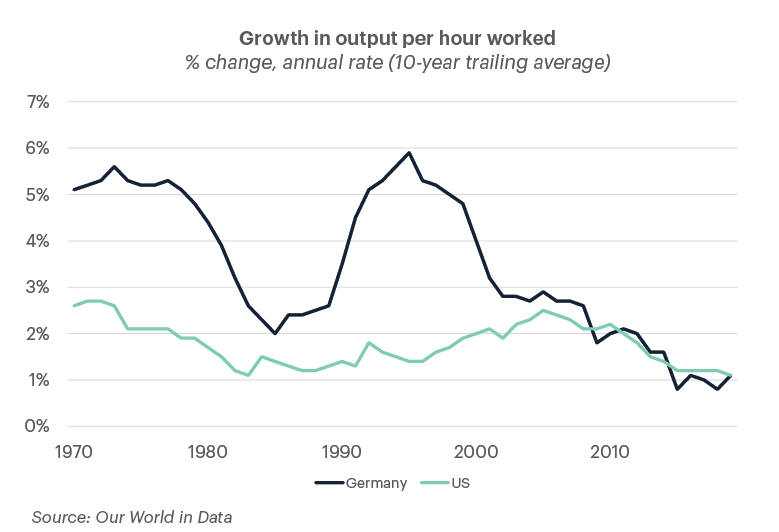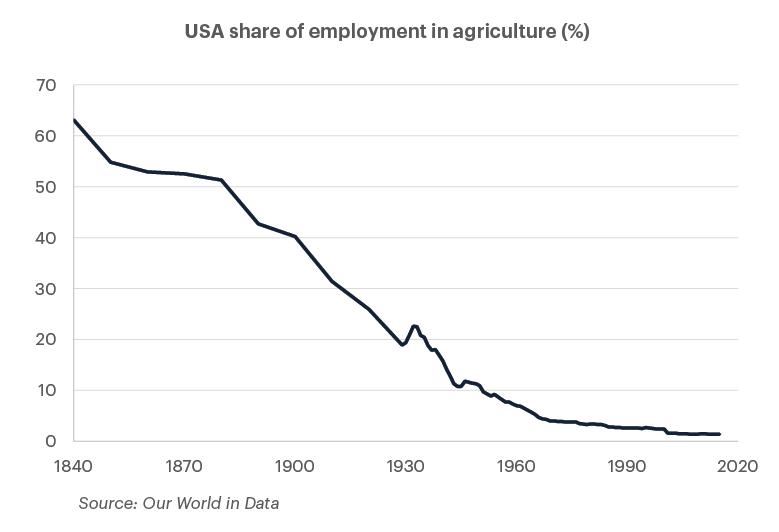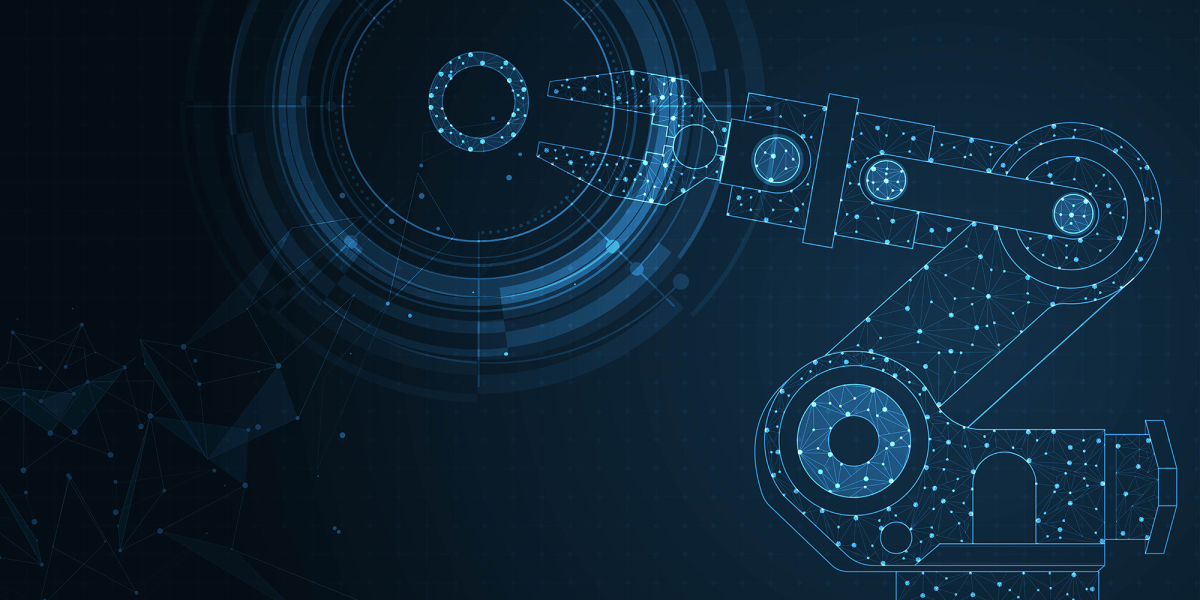A New York Times article I read last week was titled “How AI could destroy humanity” – with one of its punchier lines saying that “mitigating the risk of extinction from AI should be a global priority”. Well, I certainly agree with that! But is this fear mongering warranted? We are constantly confronted with well-intentioned stories about the risks of Artificial Itelligence – but the benefits of AI to society are tangible and potentially very significant, so they need to be weighed against the risks, and the fear kept in proportion.
First the risks
Some of the risks and drawbacks of AI are real and will need to be confronted head on. While the movie plot risks like AI wiping out humans are in the realm of fantasy nearer term risks like job displacement, bias and discrimination, or ethical risks are more pressing and appropriately starting to get attention.
Who will determine the ethics of the AI-controlled driverless car? Who will ensure AI algorithms don’t unintentionally introduce bias or perpetuate existing bias in society?
One of the risks for workers in areas like law, accounting and finance is job displacement. Is there a risk that AI displaces jobs so quickly or significantly that new industries can’t offset this and unemployment spikes and creates poverty and greater inequality?
While these risks must be considered, it is important to balance the discussion with the economic and social benefits of AI.
Lessons from the Luddites
The Luddites, a group of 19th-century English textile workers, infamously resisted the industrial revolution by destroying machinery they believed threatened their livelihoods. They feared that automating production processes, like garment manufacturing, would result in job losses and dire consequences for society.
In hindsight, their concerns were not justified. Automated manufacturing resulted in materially cheaper goods (clothes, household items etc) and as the cost of necessities fell, people had more disposable income to spend on other things – and new industries blossomed. It also led to increased productivity and economic growth. It freed up human labour from monotonous and back-breaking work, allowing workers to transition into new industries. Ultimately it improved living standards, created new jobs, and fostered innovation on an unimaginable scale.
While the Luddites saw only the immediate threat to their livelihoods, the long-term benefits of industrialisation far outweighed their concerns.
AI could be the boost to productivity growth we need
Declining productivity growth has been a concern for economists for many years now. Weak productivity growth, alongside an aging population, high debt levels and low fertility rates all contribute to the risk of economic stagnation. The chart below shows the steady decline in productivity growth in recent decades.

AI has the potential to turbo-charge productivity and drive prosperity. It won’t simply make people more productive; it will result in new services and shifts in consumption. Like automated manufacturing reduced the cost of goods, resulting in more disposable income and new areas of consumption, AI may also be deflationary – reducing the costs of services and freeing up money to spend on other things.
Economists at Goldman Sachs recently estimated that AI could increase productivity growth by 1.5% per annum over the next decade. While this may not sound like a lot, it would push productivity close to its highest rate in 50 years, and it could see economic growth in a developed market like the US increase from its post-GFC average of c.2% to c.3.5% - levels last seen in the 1990s. Over a few decades this would result in a material lift in incomes and standards of living.
The benefits are more than economic
Other benefits may not be easily measured in monetary terms but would bring about improvements in our quality of life. Healthcare providers could offer faster and more accurate diagnostic testing and the ability through genome sequencing to detect disease earlier. Treatment plans would be more personalised, and an increased focus on prevention would be possible by understanding which diseases people are genetically predisposed to. The benefits of these advances could then be spread more equitably via tele-medicine and remote healthcare.
AI should also result in better educational outcomes for students. Technologies can personalise education by adapting learning materials and approaches to individual students' learning styles and needs. Tutoring systems will provide personalised feedback and learning experiences that adapt based on how each student is progressing. AI-powered tools can also assist teachers in administrative tasks, freeing up their time for more effective instruction.
AI applications in agriculture can optimise crop yields, reduce resource wastage, and improve food security. Precision agriculture includes techniques to analyse soil data, weather patterns, and crop characteristics to provide personalised plans for irrigation, fertiliser application, and pest control. All of this has the potential to result in more sustainable agricultural practices alongside the benefit of increased productivity and income for farmers.
Any job losses may be offset by other opportunities
While there are concerns that increased productivity through AI may result in unemployment, and it is a valid risk, historical examples suggest great leaps in productivity and labour-saving devices haven’t had this impact. The automation of agriculture, for instance, drastically reduced the number of people employed in the US agricultural sector from 41.4% in 1900 to just 1.4% in 2020. However, this automation – which effectively made 40% of US agricultural workers redundant, did not lead to mass unemployment; instead, it freed up individuals to pursue new industries and opportunities.
It is important to remember that any AI-driven job losses won’t happen overnight. It will likely take decades for their full effect to be seen, by which time new services and industries will have developed.

Considering the current low unemployment rates globally, labour shortages in many sectors, and talk about the possibility of a shrinking working-age population due to aging demographics, concerns about AI-induced unemployment may be premature.
Perhaps this time is different, and there will be a more rapid reduction in jobs. But the introduction of AI promises to expand the economic pie. With a larger pie, society gains more options for equitable distribution, allowing governments levers to ensure the benefits of AI are shared widely.
If the risks can be managed, the benefits may be huge
Throughout history, new technologies have often been met with suspicion and fear. The lessons from the Luddites can guide us in navigating the concerns surrounding AI today. While it is natural to be cautious about new technologies, history has shown that the transformation brought about by technological advancements often results in better outcomes for society. In the last 50 and 100 years we have eradicated diseases, reduced poverty, improved education, and greatly improved the standard of living. There is no reason to believe that this progress will not continue.
Talk to us
If you would like to talk to someone about your investment strategy, the team at Fisher Funds are here to help. Please contact us or get in touch with your adviser.

